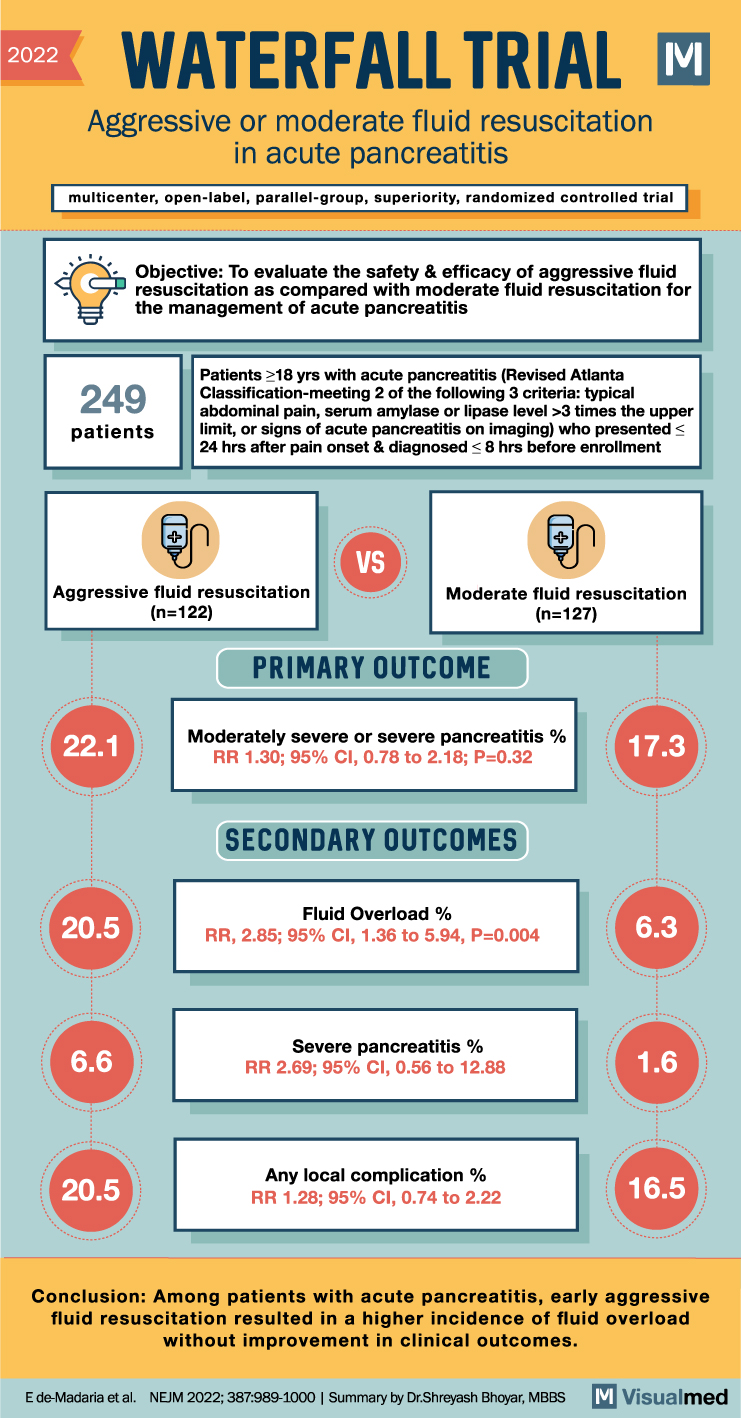
WATERFALL Trial Summary
The WATERFALL trial aimed to evaluate the effectiveness and safety of early aggressive hydration in the management of acute pancreatitis. While early aggressive hydration is a commonly recommended approach, limited evidence exists to support this practice.
Conducted at 18 centers, the trial randomly assigned patients presenting with acute pancreatitis to receive either goal-directed aggressive resuscitation or moderate resuscitation with lactated Ringer’s solution. The aggressive fluid resuscitation group received a bolus of 20 ml per kilogram of body weight, followed by 3 ml per kilogram per hour. In contrast, the moderate fluid resuscitation group received a bolus of 10 ml per kilogram in patients with hypovolemia or no bolus in patients with normovolemia, followed by 1.5 ml per kilogram per hour in all patients in this group. Fluid resuscitation was adjusted based on the patient’s clinical status at 12, 24, 48, and 72 hours.
The primary outcome of the trial was the development of moderately severe or severe pancreatitis during the hospitalization. The main safety outcome was fluid overload. The study initially planned to include 744 patients, with a planned interim analysis after enrolling 248 patients.
However, the trial was halted prematurely due to significant between-group differences in safety outcomes, without a notable difference in the incidence of moderately severe or severe pancreatitis. In the aggressive-resuscitation group, 22.1% of patients developed fluid overload, compared to 6.3% in the moderate-resuscitation group. This translated to an adjusted relative risk of 2.85 (95% confidence interval [CI], 1.36 to 5.94, P=0.004). Conversely, the incidence of moderately severe or severe pancreatitis was 17.3% in the moderate-resuscitation group and 22.1% in the aggressive-resuscitation group, with an adjusted relative risk of 1.30 (95% CI, 0.78 to 2.18, P=0.32).
The median duration of hospitalization was similar between the groups, with 6 days (interquartile range, 4 to 8) for the aggressive-resuscitation group and 5 days (interquartile range, 3 to 7) for the moderate-resuscitation group.
In conclusion, the WATERFALL trial demonstrated that early aggressive fluid resuscitation in patients with acute pancreatitis led to a higher incidence of fluid overload without any improvement in clinical outcomes. These findings challenge the common practice of aggressive hydration and highlight the importance of carefully considering the balance between fluid administration and potential complications in the management of acute pancreatitis. Further research is needed to guide optimal fluid resuscitation strategies in this patient population.